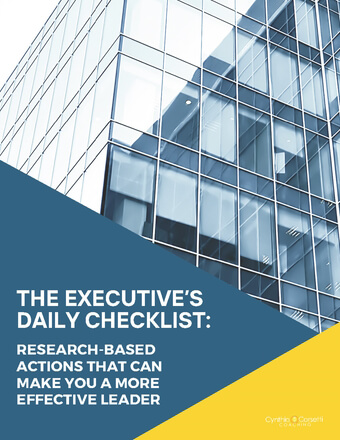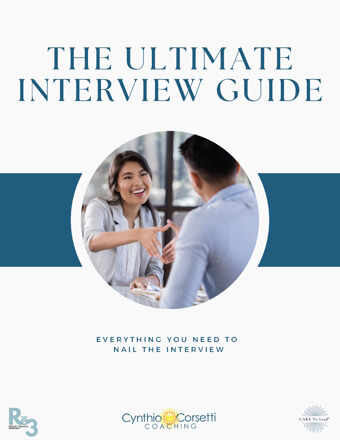Talk about triggers and influence at work. Natalie worked for years in her organization. She strived to reach director level, and she was proud of what she’d accomplished. But shortly after she reached this goal, the company hired a new employee. This employee came in at a level below Natalie. But within a few short months became Natalie’s new boss.
She was furious. Natalie knew this person wasn’t any smarter than she. And she certainly didn’t work any harder. What was it that allowed this new woman’s career to move fast? While Natalie took years to make tiny progressions. The reality is she’s not better than Natalie. She isn’t working 10 times harder.
It’s like horse racing. Two horses racing toward the finish line. Both horses are thoroughbreds in perfect physical condition. Yet one horse wins by a fraction of an inch.
The winning horse isn’t a better animal. There’s a small line between winning and losing in a horse race. It takes a tiny margin to win. And the difference in the prize is astronomical. There can be hundreds of thousands of dollars between first and second place.
It’s not much different in your career. Tens of thousands of dollars in salary between you and the other person. Over the career, it adds up.
When the other person gets the promotion, it doesn’t mean they’re better. It means they have an edge. And that edge is the difference between winning and losing the next promotion.
That edge is the ability to build influence at work.
What is influence?
What is influence? By definition – influence is the power or capacity of causing an effect in indirect or intangible ways.
One study of persuasion completed by Vanessa K. Bohns and Frank Flynn sheds some light on the topic. The study was done at Stanford Graduate School of Business.
The participants were asked to perform random requests of strangers. In one study they had to ask random strangers if they could borrow their cell phone. The participants ‘guessed’ that they’d have to make the request to around 10 people to get three to say yes. In reality, one out of every two people said yes.
This surprised the participants. It showed that, across the board, we are more likely to assume people will be harder to influence.
They then did the same experiment with one small caveat. The second time, they asked the stranger to do something unethical. Instead of asking to borrow a cell phone, they asked the stranger to vandalize a library book. Over 60% of the strangers agreed to do it. They made comments about it ‘feeling wrong’ but they still did it.
That sounds astounding, right? Complete strangers did something they knew was unethical. How we ask matters a lot. Our body language, our words. It all matters when it comes to building influence.
Like the study participants, we ‘assume’ people will turn us down. We ‘assume’ we don’t hold influence or can’t get people to do something they don’t want to do. This can keep us from stepping up at work.
The key to influence
Influence is different from popularity.
Managers use influence because force doesn’t work. Moms use influence because fear doesn’t work. At least not for long. (trust me on that, I’ve tried). We influence our significant others when we want to go to a particular restaurant. We influence the volunteers of the non-profit to take on more roles.
People sometimes use influence skills for evil. Think politics. Other times we use our capacity to build influence for good. Think Princess Diana or Oprah. We all have the capacity to build influence.
As humans we’re always building influence. It comes in many forms;
- persuasion,
- passive-aggressiveness,
- manipulation.
As well as
- encouragement,
- support,
- recognition.
We pass between the types of influence as easy as water flowing down a stream. It’s that natural.
So if influencing others is so easy, why aren’t we all getting that promotion? Why is someone else always getting ahead?
The answer is in mindfulness.
We’re influencing others each time we enter a room. How we carry ourselves. Whether we make eye contact. How we speak. Everything we do and say is creating influence. Those that have the skill of influence building stay mindful to the power.
Think about those study participants for a minute. They were trying to persuade others. They had to be very mindful of every move and every word.
Build Your Influence at Work
There are some simple tools you can use to increase your ability to build positive influence. Mastering these three tools can be the difference you need to win that next promotion.
1. Acknowledge people’s skills
This is true no matter what level you’re on. You may be trying to get your co-workers to help you with a project. Or you might be trying to get subordinates to complete a task. Either way, start by recognizing that they do bring positive things to the table.
Often we start ‘telling’ people what we need. Or even worse, what we ‘expect’ of them. We approach a situation as if we know everything there is to know. And we want to impart that knowledge on them and tell them how to do it.
The reality is they’re pretty smart too. They are completely capable individuals. So acknowledge that. Do it with your actions as well as your words. Show them the respect they deserve – with what you say, and with what you do. Your influence will begin to grow with that one small step.
2. Ask for their ‘expertise’
We all want to feel valued. If you want someone to do something, express an interest in their expertise. It might sound like this: “Sam, the senior leadership team asked me to complete this project. I know that you have more talent in this realm than anyone. I’d love to get your help on it.”
It works so much better than: “Sam, this is due next Friday. Please start working on it today.” The former builds influence. The latter builds animosity.
3. Give or at least share credit
You’ll get a lot further ahead if you acknowledge people and their contributions. Do it in public. You can use a company website or email platform. It doesn’t matter what format you use. The acknowledgement goes a long way in influence building.
Practice building influence at work in your communication and actions. Before you know it, you’ll be moving ahead in your career! You’ve got this!
If you want to receive daily tips and advice, and leverage your career the way my clients are leveraging theirs, let’s jump on a call. I’m happy to discuss your circumstances with you to see if coaching is a good fit. Every day, more people are realizing that having a coach is an important part of career development.

Cynthia Corsetti is an Executive and Career Coach. Whether you’re looking for a career transition or to make a bigger impact in your current career, Cynthia is the partner you’re looking for. Follow her on Facebook, LinkedIn, and YouTube.











Great article Cynthia! Having been on both ends of this situation in the past, having the edge of influence may seem small before it comes to fruition but impactful. It something that is always in my mind!
Hi Robert, yes those little things have massive impact. It’s actually just like engaging with people on LinkedIn regularly. Most people don’t think it’s a big deal but over time it has HUGE impact on your career!